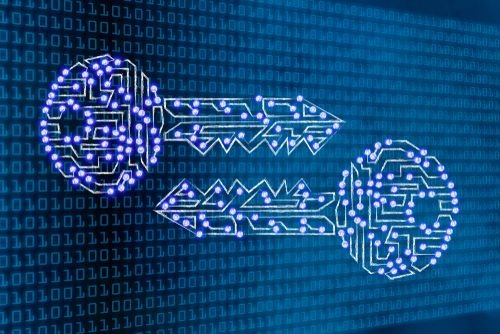
Blockchain technology is transforming various industries, and intellectual property (IP) management is no exception. The protection and management of intellectual property, including patents, trademarks, copyrights, and trade secrets, are critical for creators, inventors, and businesses. However, traditional IP management systems often face challenges such as lack of transparency, cumbersome paperwork, and vulnerability to infringement. Blockchain, with its decentralized, transparent, and secure nature, offers a promising solution to these issues. This article explores how blockchain technology can enhance intellectual property management, streamline processes, and ensure the protection of IP rights.
Key Features of Blockchain for Intellectual Property Management
1. Decentralization: Blockchain operates on a decentralized network of nodes, eliminating the need for a central authority. This decentralization ensures that no single entity controls the data, making the system more resilient and secure.
2. Immutability: Once data is recorded on the blockchain, it cannot be altered or deleted. This immutability provides a tamper-proof record of intellectual property rights, ensuring that the history and ownership of IP assets are transparent and verifiable.
3. Transparency: Blockchain provides a transparent ledger where all transactions and records are visible to authorized participants. This transparency helps prevent disputes and fraud, as all parties have access to the same information.
4. Smart Contracts: Smart contracts are self-executing contracts with the terms of the agreement directly written into code. They can automate processes such as licensing agreements, royalty payments, and IP transfers, reducing the need for intermediaries and minimizing administrative overhead.
Applications of Blockchain in Intellectual Property Management
-
1. Proof of Ownership and Creation: Blockchain can provide a secure and verifiable record of ownership and creation for intellectual property assets. Creators can register their works on the blockchain, establishing a timestamped and immutable record that serves as proof of ownership. This is particularly valuable for protecting copyrights and ensuring that creators receive proper recognition and compensation.
-
2. IP Licensing and Royalty Management: Blockchain can streamline the process of licensing intellectual property and managing royalty payments. Smart contracts can automatically execute licensing agreements and distribute royalties based on predefined terms. This automation reduces the risk of errors and delays, ensuring that creators and rights holders are fairly compensated.
-
3. Trademark and Patent Management: Blockchain can enhance the management of trademarks and patents by providing a transparent and secure registry. This registry can track the status of applications, renewals, and ownership changes, making it easier for stakeholders to verify the validity of trademarks and patents. Additionally, blockchain can help prevent the unauthorized use of trademarks and patents by providing a clear record of rights and restrictions.
-
4. Protection Against Counterfeiting: Counterfeiting is a significant issue for many industries, particularly in the luxury goods, pharmaceuticals, and electronics sectors. Blockchain can help combat counterfeiting by providing a secure and verifiable record of the authenticity and provenance of products. Consumers and businesses can use blockchain-based systems to verify the origin and legitimacy of products, reducing the risk of counterfeit goods entering the market.
-
5. Trade Secret Protection: Trade secrets are valuable assets that require careful management and protection. Blockchain can provide a secure platform for storing and sharing trade secrets, ensuring that only authorized individuals have access to sensitive information. The immutability of blockchain also ensures that any access or modification to trade secrets is recorded, providing a transparent audit trail.
-
6. Dispute Resolution and IP Enforcement: Blockchain can facilitate dispute resolution and enforcement of intellectual property rights. The transparent and tamper-proof nature of blockchain records provides clear evidence of ownership and contractual terms, making it easier to resolve disputes. Additionally, smart contracts can include provisions for automated enforcement, such as revoking licenses or access rights in case of breach.
Challenges and Considerations
While blockchain offers numerous benefits for intellectual property management, there are also challenges and considerations to address:
1. Legal and Regulatory Framework: The integration of blockchain in intellectual property management requires navigating complex legal and regulatory frameworks. Different jurisdictions may have varying laws and regulations regarding the recognition of blockchain records and smart contracts. Ensuring compliance with these laws is essential for the effective use of blockchain in IP management.
2. Data Privacy and Security: While blockchain provides security through encryption and decentralization, data privacy remains a concern. Sensitive information, such as trade secrets and confidential agreements, must be protected. Solutions such as private blockchains and off-chain storage can help balance transparency with privacy.
3. Interoperability and Standardization: For blockchain to be effective in IP management, there must be interoperability and standardization across different platforms and networks. This requires collaboration among industry stakeholders, technology developers, and regulatory bodies to establish common standards and protocols.
4. Adoption and Implementation: The adoption of blockchain technology in intellectual property management may face resistance due to the novelty of the technology and the potential disruption of established practices. Stakeholders must be educated about the benefits and challenges of blockchain, and efforts must be made to integrate blockchain solutions with existing systems.
Conclusion
Blockchain technology has the potential to revolutionize intellectual property management by providing a secure, transparent, and efficient system for protecting and managing IP rights. From proving ownership and automating licensing to preventing counterfeiting and facilitating dispute resolution, blockchain offers numerous applications that can enhance the integrity and efficiency of IP management.
However, the successful implementation of blockchain in intellectual property management requires addressing challenges related to legal compliance, data privacy, interoperability, and adoption. As the technology continues to evolve, collaboration among stakeholders will be crucial in developing and adopting blockchain solutions that meet the needs of the IP community. By harnessing the power of blockchain, creators, inventors, and businesses can better protect their intellectual property and foster innovation in a secure and transparent environment.
ALSO READ: Ethical Concerns in Machine Learning









